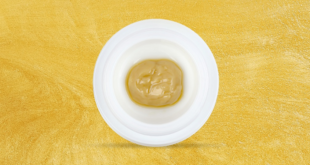
Marijuana concentrates (hash, oils, waxes, etc) are becoming a very popular method of medicating for medical marijuana patients across the country. But risks are involved because of the possible toxins created by the extraction processes used to make the marijuana concentrates.
Marijuana concentrates are comprised of cannabinoids (THC, CBD, etc) and terpenes extracted from marijuana by means of chemical solvents or gas (butane, CO2, etc). Most marijuana concentrates contain 60-90% THC; whereas, marijuana strains found in dispensaries typically contain 12-22% THC.
Higher levels of cannabinoids help many medical marijuana patients treat their illnesses without having to use marijuana as frequently.
The effectiveness of marijuana concentrates is determined by the quality of the marijuana used to create it, as well as the safety and accuracy of the extraction process. Concentrates can be rather safe when they are produced using the proper methods. But if an extraction method is not up to par, residual toxic solvents can be left behind in the final product. Inhalation or consumption of these solvents can be very harmful.
Currently, the Arizona Department of Health Services does not require dispensaries or caregivers to have their marijuana tested by a lab for traces of toxic substances, but many dispensaries and caregivers do get their marijuana tested anyways. Therefore, when looking to purchase marijuana concentrates be sure to ask the dispensary’s employees if their concentrates are safe for consumption and are free of toxic contaminants.
 AZ Marijuana Arizona Marijuana Info
AZ Marijuana Arizona Marijuana Info






